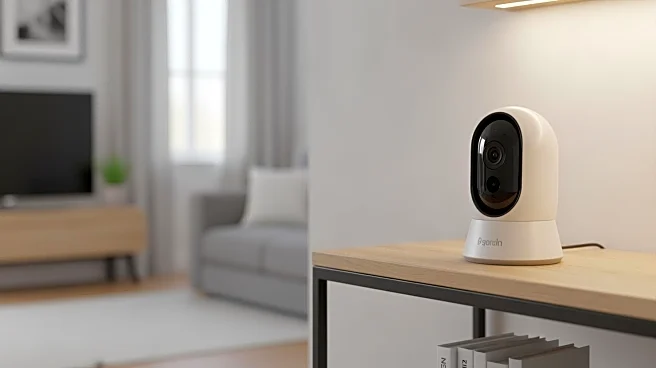What's Happening?
Artificial intelligence is increasingly being integrated into smart home devices, providing enhanced security features without additional costs. Google Nest devices, such as the Nest Doorbell and Nest wireless
cameras, offer free video storage and object recognition capabilities. These devices can differentiate between people, animals, and vehicles, reducing false alerts and enhancing security. Other brands like Tapo and Lorex also provide affordable AI-enabled security cameras with features like motion detection and human shape recognition, eliminating the need for subscription fees. Eufy offers a video smart lock that combines a smart lock and video doorbell, providing AI detection for people, animals, and packages without extra charges.
Why It's Important?
The integration of AI in smart home devices represents a significant shift in home security, making advanced features accessible without the burden of ongoing costs. This development is crucial for consumers seeking affordable security solutions, as it allows for enhanced monitoring and protection against threats like package theft. The availability of cost-effective AI features could drive wider adoption of smart home technology, potentially influencing market dynamics and consumer expectations. Companies offering these solutions may gain a competitive edge by attracting budget-conscious consumers looking for reliable security options.
What's Next?
As AI technology continues to evolve, more smart home devices are expected to incorporate advanced features at no additional cost. This trend could lead to increased competition among manufacturers to offer the most comprehensive and affordable security solutions. Consumers may see further innovations in AI capabilities, such as improved facial recognition and more sophisticated alert systems. The growing demand for smart home security could also prompt regulatory discussions around privacy and data protection, as these devices collect and process significant amounts of personal information.
Beyond the Headlines
The rise of AI-powered smart home devices raises important ethical and privacy considerations. As these devices become more prevalent, concerns about data security and the potential for surveillance may increase. Manufacturers will need to address these issues by implementing robust data protection measures and ensuring transparency in how data is used. Additionally, the widespread adoption of AI in home security could influence cultural attitudes towards privacy and security, potentially leading to shifts in consumer behavior and expectations.










